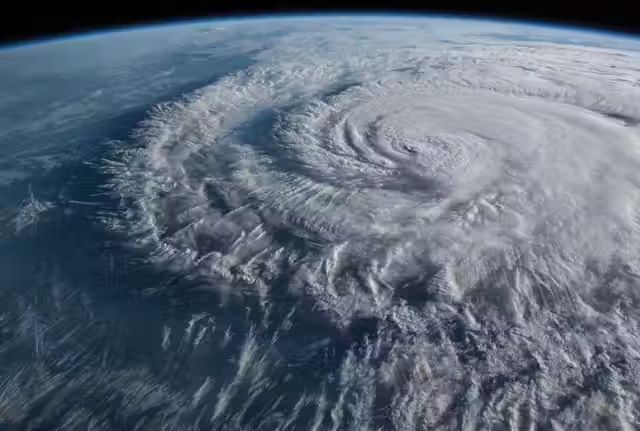When is Hurricane Season 2024? It’s time to prepare for what experts believe might be a record-breaking number of storms and landfalls in the Southeast and Gulf coasts in 2024 during the Atlantic hurricane season.
According to forecasts by the National Oceanic and Atmospheric Administration (NOAA), there is an 85% likelihood of an Atlantic hurricane season that is above average. This season could produce 17 to 25 named storms, 8 to 13 of which could become hurricanes, and up to 7 of which might become major hurricanes. Hurricane season in the Atlantic occurs from June 1 to November 30.
Understanding the Hurricane Season in 2024
Hurricane season is a critical period every year, especially for those living in regions prone to these powerful storms. The 2024 hurricane season is expected to follow the typical patterns we’ve seen in recent years, with some variations that are important to note. Understanding when hurricane season begins and ends, as well as the potential for storm development, is crucial for preparedness and safety.
When is Hurricane Season?
Hurricane season refers to the period during which hurricanes are most likely to form in the Atlantic Ocean, Gulf of Mexico, and the Caribbean Sea. This season typically runs from June 1st to November 30th, with the peak occurring between mid-August and late October. During this time, conditions in the Atlantic are most conducive to the development of tropical storms, which can escalate into hurricanes.
When Does Hurricane Season Start and End in 2024?

The 2024 hurricane season is set to begin on June 1, 2024, and will continue until November 30, 2024. While these dates mark the official start and end, it is important to note that tropical systems can sometimes form outside of these months, though this is rare.
Why These Dates?
The dates for the hurricane season are based on long-term climatological data, which shows that the vast majority of tropical storms and hurricanes occur within this period. This timing is due to several factors, including ocean temperatures, atmospheric conditions, and the availability of moisture, all of which reach optimal levels for hurricane formation during these months.
Peak of Hurricane Season 2024
The peak of the 2024 hurricane season is expected to occur between mid-August and late October. During this period, the likelihood of hurricanes forming is highest due to warmer sea surface temperatures and favorable atmospheric conditions. Historically, the majority of the most powerful and destructive hurricanes have occurred during this window.
Factors Influencing the 2024 Hurricane Season
Several factors can influence the activity level of a given hurricane season. For 2024, meteorologists will be closely monitoring the following:
1. Sea Surface Temperatures
Warmer sea surface temperatures are a key driver of hurricane formation. When ocean waters are warmer than usual, they provide more energy for storms to develop and intensify. In 2024, any significant variations in sea temperatures could lead to an increase or decrease in hurricane activity.
2. El Niño and La Niña
The presence of El Niño or La Niña conditions can significantly affect the hurricane season. El Niño tends to suppress hurricane activity in the Atlantic by increasing wind shear, which disrupts storm formation. On the other hand, La Niña often leads to a more active hurricane season by reducing wind shear, allowing more storms to develop. The state of these climate patterns will be a major factor in determining the overall intensity of the 2024 hurricane season.
3. Wind Shear
Wind shear refers to the change in wind speed and direction with altitude. High wind shear can tear apart developing storms, preventing them from becoming hurricanes. Conversely, low wind shear creates a more favorable environment for storm development. Monitoring wind shear levels will be crucial for predicting hurricane activity in 2024.
4. Moisture Levels
The availability of moisture in the atmosphere is another critical factor. Hurricanes thrive in environments with high humidity, as this moisture is necessary for the development and sustenance of the storm system. Dry air can inhibit hurricane formation, while moist air can enhance it.
Predicted Activity for the 2024 Hurricane Season
While it is impossible to predict the exact number of storms or their intensity, current models and historical data suggest that 2024 could be a near-average to above-average hurricane season. This means we could see 10 to 16 named storms, with 5 to 9 of them potentially reaching hurricane strength, and 2 to 4 becoming major hurricanes (Category 3 or higher).
Preparedness Tips for the 2024 Hurricane Season
Given the unpredictability of hurricanes, it is essential to be prepared well in advance of the 2024 hurricane season. Here are some key preparedness tips:
1. Have a Plan
Ensure that you have a family emergency plan in place. This plan should include evacuation routes, a communication strategy, and a designated meeting place if your family gets separated.
2. Stock Up on Essentials
Before the season begins, stock up on essential supplies, including non-perishable food, water, medications, flashlights, batteries, and a first-aid kit. These items are crucial during and after a hurricane when power outages and supply shortages are common.
3. Secure Your Property
Take steps to secure your home against potential hurricane damage. This may include installing storm shutters, reinforcing your roof, and securing outdoor furniture. Ensuring your home is well-prepared can reduce the risk of damage and keep you safe.
4. Stay Informed
Stay updated on the latest weather forecasts and warnings from reliable sources such as the National Hurricane Center (NHC). Having access to accurate information will allow you to make informed decisions and act quickly if a hurricane threatens your area.
Historical Comparison: How Does 2024 Compare?
Looking back at previous hurricane seasons can provide valuable insights into what we might expect in 2024. Historically, seasons with similar environmental conditions have produced a comparable number of storms. For instance, if 2024 experiences La Niña conditions, we could see an increase in hurricane activity similar to the seasons of 2020 and 2021, which were both highly active.
Potential Impact Areas for 2024
While it is impossible to predict exactly where hurricanes will strike in 2024, certain regions are historically more vulnerable. The Gulf Coast, Florida, the Carolinas, and the Caribbean islands are among the areas most frequently affected by hurricanes. Residents in these regions should pay particular attention to the forecasts and be prepared to take action.
Conclusion: Staying Safe During the 2024 Hurricane Season
The 2024 hurricane season is shaping up to be an active one, and it is essential to be prepared. By understanding the season’s timeline, potential factors influencing hurricane formation, and taking proactive steps to secure your home and family, you can mitigate the risks associated with these powerful storms.

